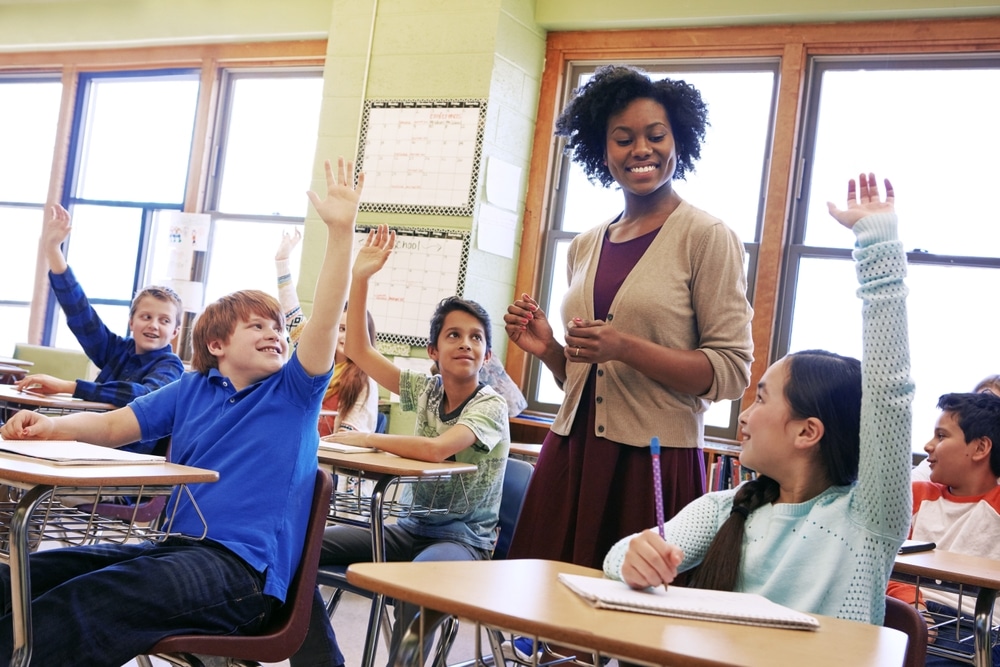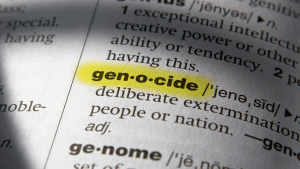Every year, the week before Thanksgiving, we take the time to celebrate American Education Week and all of the people who support the success of our nation’s children. Of course, we celebrate teachers and principals. But also, we celebrate the educational assistants who work with children with special needs, those who work in the offices who keep the schedules running on time, submit reports and data that keep schools in compliance, we celebrate the people who prepare school lunches, keep our schools clean, drive our busses, make repairs, mow the lawns, and so many others whose work may go unnoticed.
American public schools are incredibly important to our communities. A large majority of American children attend public schools. In fact, only 18.1% of children attend private schools. The almost 50 million students enrolled in public schools in the United States count on the teachers, administrators, and staff to support their development of skills and knowledge they need to be successful in life. Public schools ensure that all children have an equal opportunity to receive an education regardless of their race, ethnicity, or socio-economic status. The benefits of providing a free and appropriate education for all children is essential to both ensuring an informed citizenry and developing a productive workforce. For many communities, public schools are places where families meet one another, develop lifelong friendships, and develop systems of support.
I am a big proponent of public schooling. For me, like so many others, public school provided me access to a better future. That is why I am incredibly disheartened by the moves president-elect Donald Trump seems to be making to disparage and potentially dismantle public schools. He recently shared a video outlining his 10-point plan on education. In this video he shares a few ideas that are not only problematic, but they are just not true.
For instance, he says that the U.S. spends the most on education and gets the worst outcomes. His statement that “we are at the bottom of every list” related to academic achievement is just not true. Many might argue that we could do better, but we are not even close to the bottom. For instance, the PEW Research Center reports international scores and finds that 10 out of 48 countries have statistically higher math scores among 4th graders than the U.S. and about 7 of those countries have higher average science scores. By 8th grade, only 7 of 37 countries have statistically higher math scores and science scores. Can we do better? Absolutely! But, to make a presidential video and share misinformation is, well, expected I suppose. But still disappointing.
An interesting fact is that there are approximately 1,700 American International Schools around the world. These schools provide an American education to Americans living abroad, but also serve a large number of international families who seek them out because they want their children to get an American curriculum. Families pay a premium to send their children to these schools. It seems counterintuitive that some of the most successful people in the world choose to pay for an American education for their children if it is the “absolute worst.”
He also says that students are taught to “hate their country”. Again, this inflammatory rhetoric is not based in fact and just aimed at sowing distrust between families and teachers. One of the signature moves for this administration is school choice. As I have written previously, the school choice movement is built on faulty logic and assumptions about how it will work both in terms of funding and access. But, no matter where parents send their children to school, they are going to need teachers and staff. Promoting a narrative that teachers are the problem is not helping anyone. Which is why when he said “…we have people that in many places hate our children…” my jaw hit the ground. The statement was shoehorned into a part of his speech where there was no clear connection. He just seemed to want to share that inspiring tidbit to further denigrate people who have dedicated their lives to other people’s children.
His fifth promise is to bring back school prayer. That makes me wonder which prayers. We have a very diverse country with respect to religion. Will we say Jewish prayers, Muslim prayers, and Christian prayers? Will we meditate? How else will prayer show up? This is particularly interesting because point four was about not indoctrinating students but then point five is about bringing in prayer. You see the problem right?
Of course, another promise is to close the Department of Education. First of all, eliminating this department could cause as many as 4,000 people to lose their jobs. But, if it is really not useful, we might have to let it go. However, it turns out that the Department of Education does some important work. One of their tasks that impacts many children and families is that they make sure public schools are following the federal laws that protect disability rights for students. Sending this work “back to the states” assumes that the states have the capacity to take on this work. Moreover, it might mean that children’s rights change when they cross a border. As a parent, I don’t want the state where I live to dictate whether or not my child will be able to access the services that are their right.
READ: ‘Educators Rising’ Is Preparing the Next Generation of Pennsylvania Teachers
So, at least for this year, let’s use this moment to do as President Biden wrote in his Proclamation on American Education Week 2024 and “celebrate the power and promise of our Nation’s public education system, which has empowered so many students to realize their full potential.”
It is up to all of us now to decide what we want for our children, pay attention to the changes being made, and do all you can to advocate for our schools and those who work in them. We need schools that honor all of the children who they serve. We need schools that do not censor our history but rather teach it fully. We need schools who promote critical thinking and information literacy. We need schools who love and respect all of the many people who often spend more time with our children, planning for our children, and supporting their well being than anyone else in their lives.







